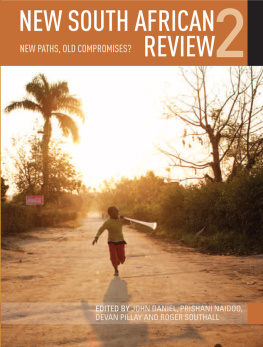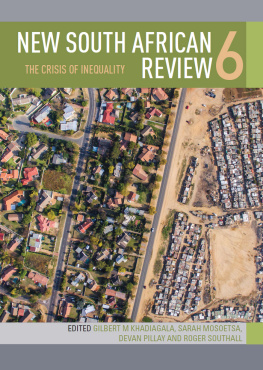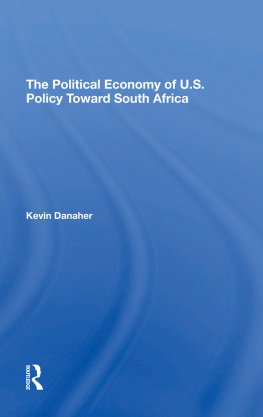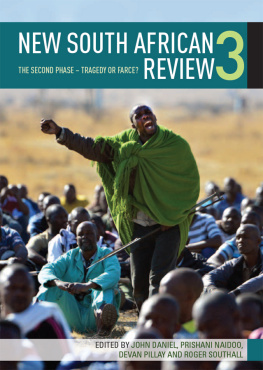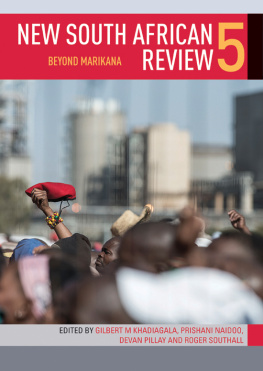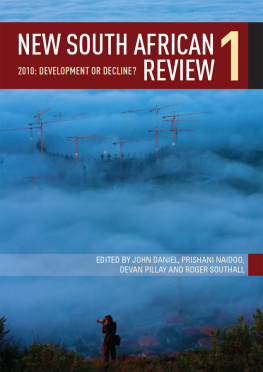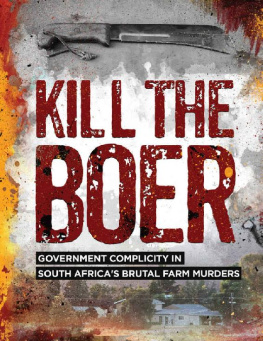Devan Pillay - New South African Review 2: New paths, old compromises?
Here you can read online Devan Pillay - New South African Review 2: New paths, old compromises? full text of the book (entire story) in english for free. Download pdf and epub, get meaning, cover and reviews about this ebook. City: Johannesburg, year: 2011, publisher: Wits University Press, genre: Science / Politics. Description of the work, (preface) as well as reviews are available. Best literature library LitArk.com created for fans of good reading and offers a wide selection of genres:
Romance novel
Science fiction
Adventure
Detective
Science
History
Home and family
Prose
Art
Politics
Computer
Non-fiction
Religion
Business
Children
Humor
Choose a favorite category and find really read worthwhile books. Enjoy immersion in the world of imagination, feel the emotions of the characters or learn something new for yourself, make an fascinating discovery.
- Book:New South African Review 2: New paths, old compromises?
- Author:
- Publisher:Wits University Press
- Genre:
- Year:2011
- City:Johannesburg
- Rating:4 / 5
- Favourites:Add to favourites
- Your mark:
New South African Review 2: New paths, old compromises?: summary, description and annotation
We offer to read an annotation, description, summary or preface (depends on what the author of the book "New South African Review 2: New paths, old compromises?" wrote himself). If you haven't found the necessary information about the book — write in the comments, we will try to find it.
An explanation of the New Growth Plan and alternatives to neo-liberal and capitalist development in South Africa
In this second volume of the New South African Review, the New Growth Path adopted by the South African government in 2010 provides the basis for a dialogue about whether decent work is the best solution to South Africas problems of low economic growth and high unemployment. There are investigations into rising inequality against the backdrop of the failings of Black Economic Empowerment; greening the economy, with emphasis on biofuels; the crisis of acid mine drainage on the Witwatersrand; possibilities for participatory forms of government; civil society activism; transformation of the print media and the SABC; the crisis in child care in public hospitals; the relationship between the police and a township community; the problems related to the absence of legislation to govern the powers of traditional authorities over land allocation; and assessments of the state of opposition political parties and the ANC Alliance. Asking whether the New Growth Plan reflects a set of new policies or an attempt to re-dress old (com)promises in new clothes, this volume brings together different voices in debate about possibilities for alternatives to neo-liberal and capitalist development in South Africa.
Devan Pillay: author's other books
Who wrote New South African Review 2: New paths, old compromises?? Find out the surname, the name of the author of the book and a list of all author's works by series.

